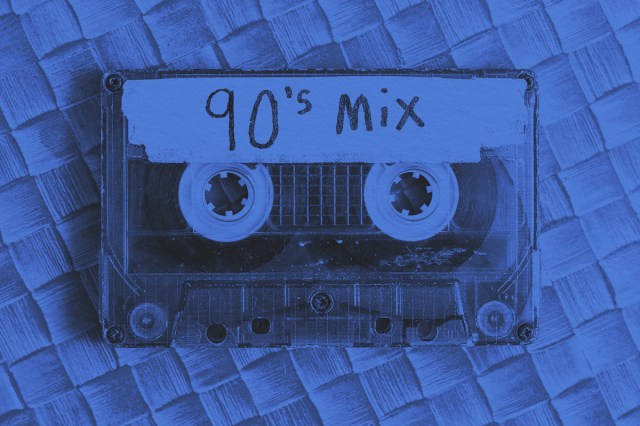
The ’90s are back in a big way: Check out a “vintage” fashion seller, and they’ll likely be hawking JNCO jeans and babydoll dresses. Even some of the most recent “historical” American Girl dolls hail from the 1990s, dressed up in Cher Horowitz cosplay. But does the slang from the last decade of the 20th century stand the test of time?
Brimming with sarcasm, “as if” is a retort to any sort of preposterous suggestion, as though you’re imagining an alternate reality wherein such a suggestion could actually happen. Although this phrase was popularized by the 1995 film Clueless, it didn’t originate with the movie. Of Cher’s catchphrase, director Amy Heckerling said, “At that time, which was like early ’90s, ‘As if!’ was floating around in the gay community, and I thought it was really a multiuseful, multipurpose word. I thought it would be a good thing for teenagers to be saying.”
This interjection is used in various situations, all of which imply some level of excitement you can’t articulate any other way. It appeared around 1990 in hip-hop slang, but it hit the mainstream thanks to sports announcer Stuart Scott using it prolifically on ESPN’s SportsCenter.
A scrub, in ’90s vernacular, is a guy with no money, no job, and no prospects. Though it exploded into mainstream use by way of girl group TLC’s 1999 single “No Scrubs,” the Oxford English Dictionary (OED) ascribes the meaning of “a mean insignificant fellow, a person of little account or poor appearance” as far back as 1598. Take, for example, this usage in Henry Fielding’s 1749 novel The History of Tom Jones, a Foundling: “He is an arrant Scrub, I assure you.”
Popularized by Will Smith’s 1997 single “Gettin’ Jiggy Wit It,” this phrase means to throw down and have a good time, sometimes with sexual connotations. However, the word “jiggy” was already in popular slang usage prior to the song, with the OED noting its use as an adjective meaning “attractive, stylish, or wonderful” in 1996, such as in this entry in Source magazine: “Bikinis, barbecues, beaches, and jiggy honeys are the order of the day.”
“All that,” or the longer “all that and a bag of chips,” can be used as either a compliment or more sarcastically toward the subject in question (e.g., “She thinks she’s all that”). It evolved out of African American Vernacular English (AAVE), and simply means something is great or particularly impressive or attractive. The OED traces early usage of “all that” to 1989, and the full “all that and a bag of chips” to a 1994 issue of People.
If something is “da bomb,” it’s a success, especially as entertainment. (Alternatively, to say that a piece of entertainment “bombed,” as a verb, means it failed.) While etymologists trace this connotation back to 1954, the full phrase “da bomb” is a true ’90s creation. Nowadays, the singular “bomb” floats around as an adjective to imply something was good or great: “My lunch today was bomb.”















